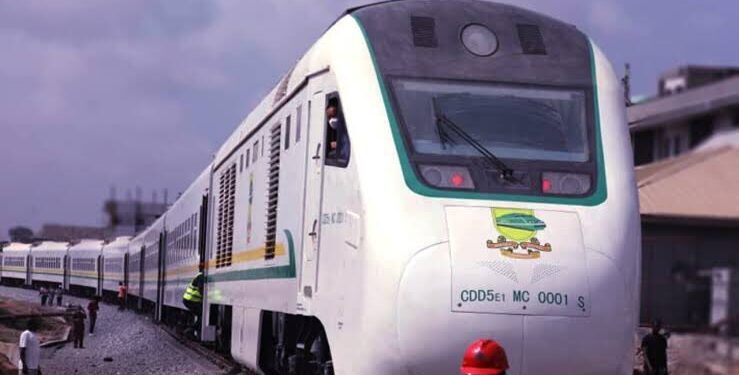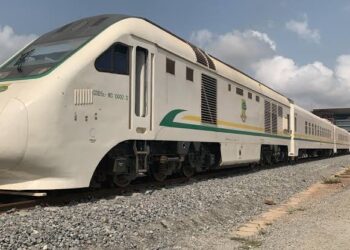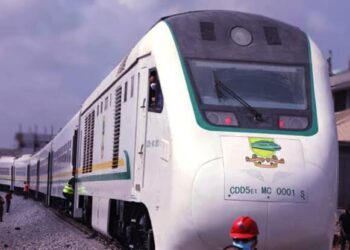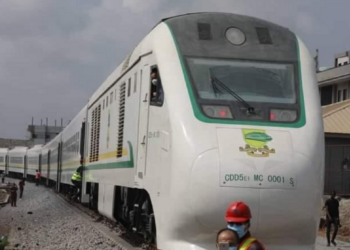The Nigerian Railway Corporation (NRC) has announced that the Abuja–Kaduna passenger train service will resume this week, following the completion of repairs and safety checks on the affected section of track at Asham.
The statement was signed on Saturday by Callistus Unyimadu, Chief Public Relations Officer, on behalf of NRC Management.
The service was temporarily suspended after a Kaduna-bound train derailed on Tuesday morning, August 26, 2025, shortly after leaving Abuja at 9:45 am.
“The Nigerian Railway Corporation (NRC) is pleased to announce that the Abuja–Kaduna passenger train service is set to resume operations next week, following the successful completion of repair and safety checks on the affected section of track at Asham.
“The service was temporarily suspended after the unfortunate incident of August 26, 2025. Since then, the Corporation has worked tirelessly to ensure both the infrastructure and rolling stock are restored to the highest safety standards in line with global best practices,” the statement read in part.
The NRC also confirmed that refunds have been processed for 512 of the 583 passengers on board the derailed train, with efforts ongoing to reach the remaining travellers. The Corporation emphasised that passenger welfare, safety, and comfort remain its top priorities.
In the statement, the NRC expressed gratitude to the Federal Ministry of Transportation, security agencies, media, and other stakeholders for their support during the suspension. Further details, including the official resumption date and schedule, will be communicated in the coming days.
What you should know
Nigeria’s railway system has faced multiple accidents in recent years, with derailments being the most frequent and concerning. The Abuja–Kaduna corridor, one of the busiest passenger routes, has been particularly affected.
- In May 2024, a derailment occurred at Jeremy Station along the route. The most recent incident happened on August 26, 2025, when a Kaduna-bound train experienced a “hot axle” fault near Rigasa Station, disrupting services for business-class passengers.
- The National Bureau of Statistics 2023 Social Statistics Report recorded 183 derailments between 2020 and 2022, compared with 155 incidents of loss of control or locomotive failure, 51 detachments, 28 collisions, 9 washouts, and 41 accidents from other miscellaneous causes.
Vandalism has also posed a major challenge to Nigeria’s railways. The removal of tracks, theft of signalling equipment, and sabotage of critical infrastructure have repeatedly disrupted operations and heightened safety concerns across multiple corridors nationwide.

























